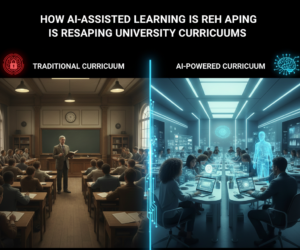A Columbia student was punished for using a cheating tool during an interview, which raised $5.3 million to “cheat on everything.”

A Columbia student was punished for using a cheating tool during an interview, which raised $5.3 million to “cheat on everything.”
Chungin “Roy” Lee, 21, revealed Sunday that Abstract Ventures and Susa Ventures offered $5.3 million in initial investment for his AI application Cluely to “cheat on everything.”
The firm was founded when Lee stated in a popular X thread that Columbia University punished him and his co-founder for developing a software engineer job interview cheating tool.
They currently use Interview Coder at their San Francisco company Cluely. An in-browser window that the interviewer or test provider can’t see lets users “cheat” on examinations, sales calls, and job interviews.
In a manifesto, Cluely compares itself to “cheating” products like the calculator and spellcheck.
Cluely also released a sleek, but divisive, debut video featuring Lee deploying a covert AI helper to deceive to a lady about his age and art expertise on a nice dinner date:
No more Cluely. cheat everywhere. pic.twitter.com/EsRXQaCfUI
April 20, 2025, Roy
Some complimented the video for catching attention, while others compared it to “Black Mirror”:
Imagine shortening a black mirror for a commercial ad https://t.co/2GKXQj8e1v
@code_star Cody Blakeney April 21, 2025
Cluely CEO Lee told TechCrunch the AI cheating tool topped $3 million in ARR this month.
Cluely COO Neel Shanmugam, also a 21-year-old former Columbia student, is another co-founder. Shanmugam faced Columbia disciplinary procedures for the AI tool. Last week, Columbia’s student newspaper stated that both co-founders left. Columbia denied comment due to student privacy restrictions.
Cluely was created to help developers cheat on LeetCode, a site for coding challenges that some software engineers, including Cluely’s creators, believe antiquated and pointless.
Lee claims the AI cheating technique got him an Amazon internship. Amazon refused to comment on Lee’s case to TechCrunch, but stated job hopefuls must promise not to use unapproved technologies during interviews.




